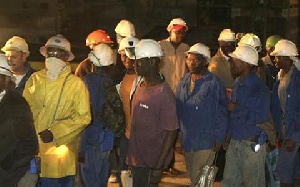The Ghana National Chamber of Commerce and Industry (GNCCI) has expressed concern about the recent increases in utility tariffs and waned of imminent job losses. It said most industries would collapse under the burden of the high water and electricity charges.
Mr Fosu Yeboah, Ashanti Regional Executive Secretary of the Chamber, who spoke to the Ghana News Agency (GNA), on Thursday, described the current state of the private sector as that of “hopelessness and despair.” If things continue this way many industry operators might fold up, he said, insisting that their planned budgets had been thrown overboard by the astronomical increases.
He said, even though they were expecting an upward review of the charges, they never anticipated such “huge quantum leap.” Mr Yeboah said these, combined with the fuel price increases, high interest rate, labour cost and multiplicity of taxes, had left the private sector badly hurt.
The Public Utility and Regulatory Commission (PURC) last week announced increases in water and electricity tariffs in response to requests made by the utility companies. Electricity charges have gone up by 78.9 per cent, with water rising by 52 per cent, effective October 1, this year.
The hike has generated public outrage with the people united in the opinion that these are not only unreasonable and unjustified but likely to exacerbate the already harsh economic conditions, majority of Ghanaians are living in.
Mr Yeboah pointed out that industries, especially those in the timber milling sector, depended heavily on electricity and water for production and therefore they would be forced to borrow additional money from the banks at higher interest rates to maintain the same level of production. “This would surely mean that some of the workers would have to go home to offset the cost.”
He appealed to the government to set up a fund to assist industries that relied more on water and electricity for their operations, as well as soft loans to keep them in business. The Enterprise Development and Agricultural Investment Fund (EDAIF) could also create a component to support them with concessionary loans.
Mr Yeboah underlined the need to find innovative ways of widening the tax net to bring in more people and end the present situation of over-taxing only a few.
Business News of Friday, 4 October 2013
Source: GNA

















